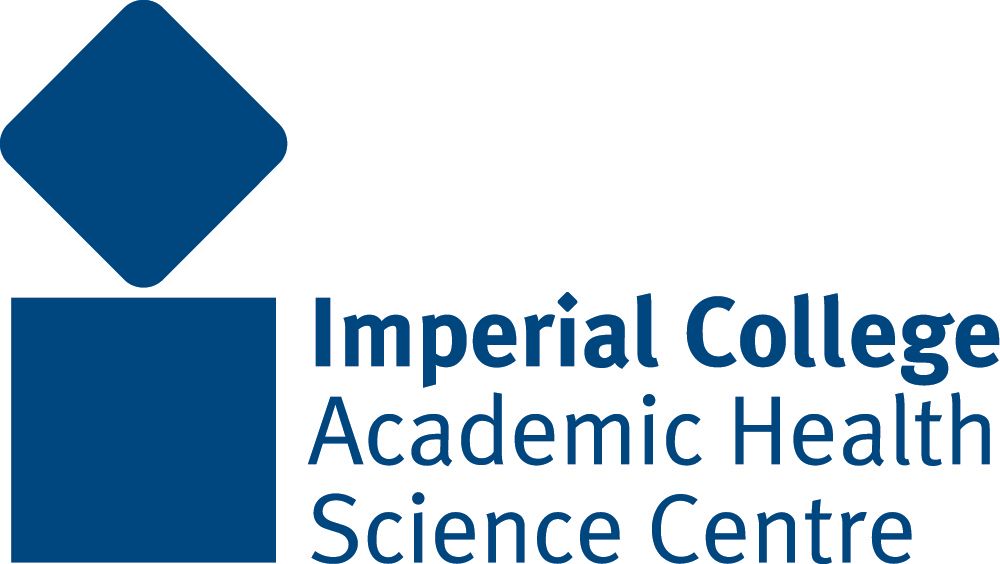Humans of health research
Interviews with researchers and patients working together to improve healthcare
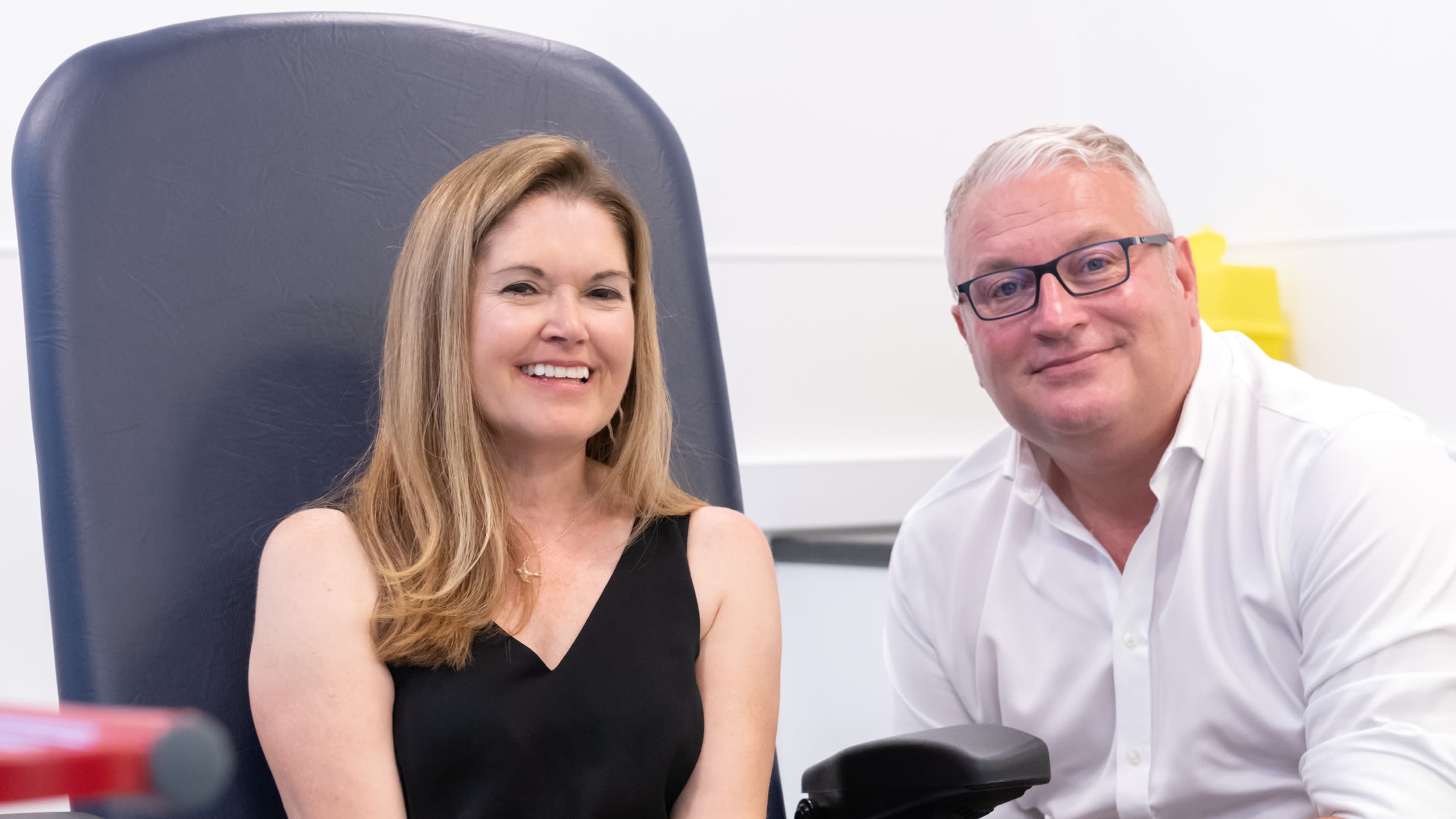
Healthcare research conducted by Imperial’s clinical academics is saving lives, improving patients' health outcomes and transforming NHS services.
To celebrate the extraordinary work of our clinical researchers Imperial College Academic Health Science Centre has launched an online photography exhibition to spotlight some of Imperial’s clinical researchers and their innovative work. It also features the patients who have benefited, and whose experiences and input have influenced and inspired the research.
Covering a broad range of medical specialities, each portrait highlights what motivates these hardworking staff as well as demonstrating why their research is vital.
In this feature, the seventh in the Humans of Health Research series, we hear from a Speech and Language Therapist and his patient on work to treat a rare airway disorder. We also hear from a Primary Care and Public Health Professor on his work to improve COVID-19 vaccine confidence.
Dr Justin Roe
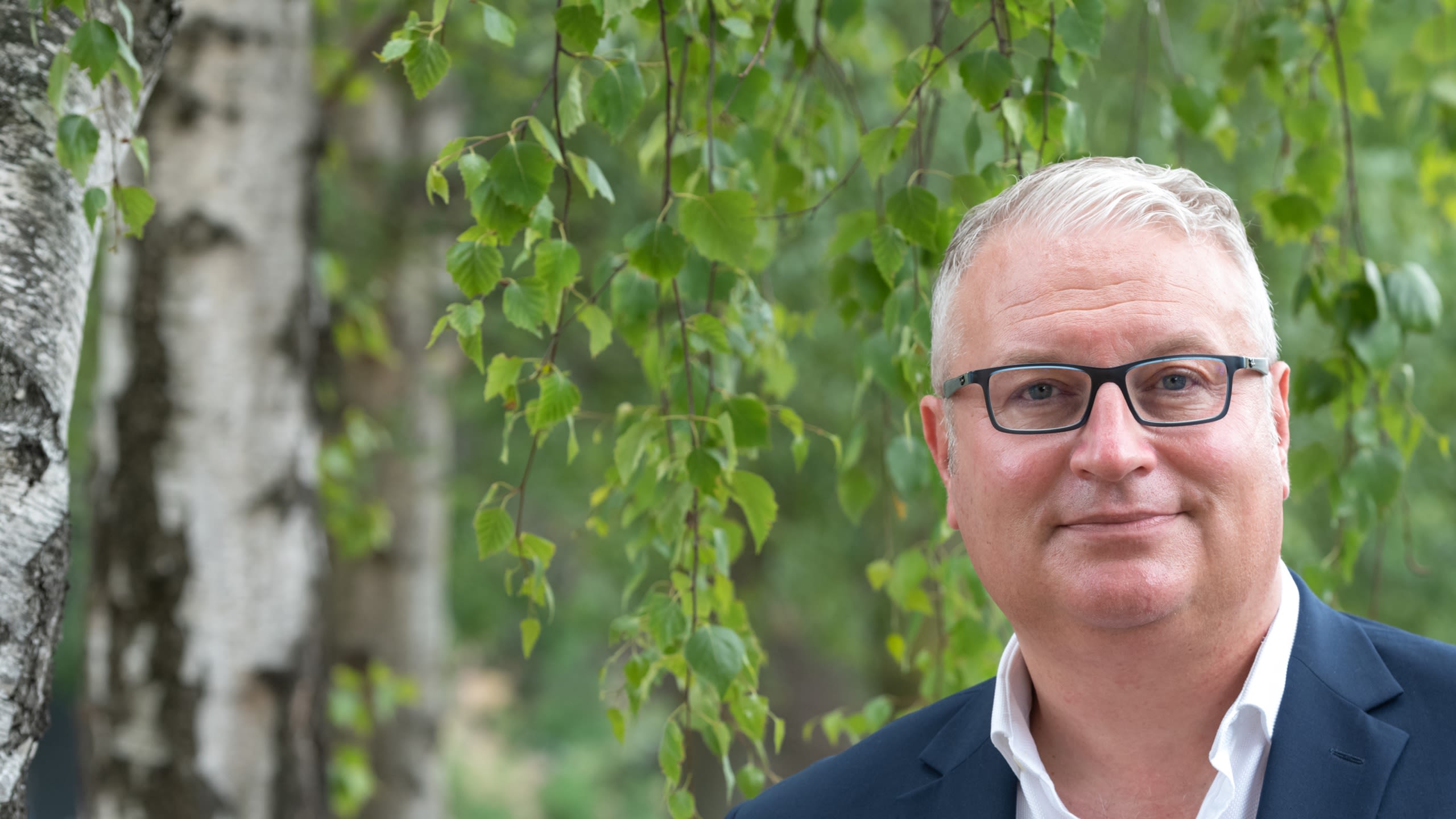
Dr Justin Roe is the Clinical Service Lead at the Complex Laryngology/ Airway Reconstruction Service at Imperial College Healthcare NHS Trust and Honorary Clinical Senior Lecturer at Imperial College London. He is also a Consultant Speech and Language Therapist based at The Royal Marsden NHS Foundation Trust.
Dr Roe’s research focuses on head, neck and lung cancers, as well as airway stenosis - a rare disorder which often requires life-long care.
“I joined the Complex Laryngology/ Airway Reconstruction Service in January 2016. What attracted me to the role was the opportunity to do clinical work alongside research work.
“I had previously worked on research that looked to address the quality of life needs for cancer patients but there was very little work in this area for airway stenosis patients.
“Airway stenosis is condition that causes narrowing of the airways and obstructs the passage of air into the lungs, on the voice and swallowing.
“Patients with the condition experience breathing difficulties, problems with voice quality and trouble swallowing food and drinks. One of the treatments for the condition is surgery to widen the trachea (windpipe) to allow better airflow. However, there can be a significant impact on the voice and ability to swallow safely and efficiently due to the type of surgery people need.
In focus groups I’ve led, I’ve seen patients making sure others have access to information like what benefits are available to them if they’re unable to work and sharing their experiences to help others with the same condition.
"Along with my colleague Dr Gemma Clunie, Speech and Language Therapist at Imperial College Healthcare NHS Trust, we recognised that people who have airway stenosis have similar physical and mental health needs as head and neck cancer patients such as depression and anxiety.
“I led on a quality improvement project working in partnership with people diagnosed with airway stenosis and healthcare professionals to better understand their experience of care and treatments.
"I also wrote a review with Gemma about the needs of people diagnosed with airway stenosis as a result of their disease and also interventions to improve their airways.
“Working in partnership with colleagues from Liverpool, this led to a project to develop a Patient Concerns Inventory for People Diagnosed with Airway Stenosis (the PCI-AS). It serves as a prompt list to help patients choose what they would specifically like to talk about in their consultations.
“To use the tool, patients review a list of physical and emotional needs and symptoms, and select the issues they want to discuss through a paper or computer based system. This supports a move away from clinician-led to more patient-led consultations. The work to develop the tool was funded by National Institute for Health and Care Research Imperial Biomedical Research Centre (Imperial BRC) and Imperial Health Charity.
“Working with patients on this project has been vital and they have helped get the tool to the point that it is ready for testing in clinical practice. I am hoping that this will lead to a much more holistic way of supporting people with airway stenosis.
“Patients have always been at the centre of my research. I think one of the most important things to remind ourselves as clinicians is what is everyday for us is not everyday for our patients.
"For example, through Gemma's work it was highlighted that a surgical procedure to create an opening at the front of the neck so a tube can be inserted into the windpipe (tracheostomy) to help patients breathe – is one of the treatments we give to airway stenosis patients. We perform these procedures every day of the week. However, for our patients it is still a huge deal for them even if they’ve had a tracheostomy before. It can affect how they look, feel about themselves as well as the issues involved in living with and caring for a tracheostomy.
“Working on research projects with patients, I have also learnt just how much they support each other. In focus groups I’ve led, I’ve seen patients making sure others have access to information like what benefits are available to them if they’re unable to work and sharing their experiences to help others with the same condition.
"Robust patient, public involvement and engagement (PPI/E) in research is essential to make sure that what we are studying is relevant and a priority to improve their care and the experience of those we care for. As one of our patient experts said after the original quality improvement project.”
Patients have always been at the centre of my research. I think one of the most important things to remind ourselves as clinicians is what is everyday for us is not everyday for our patients.

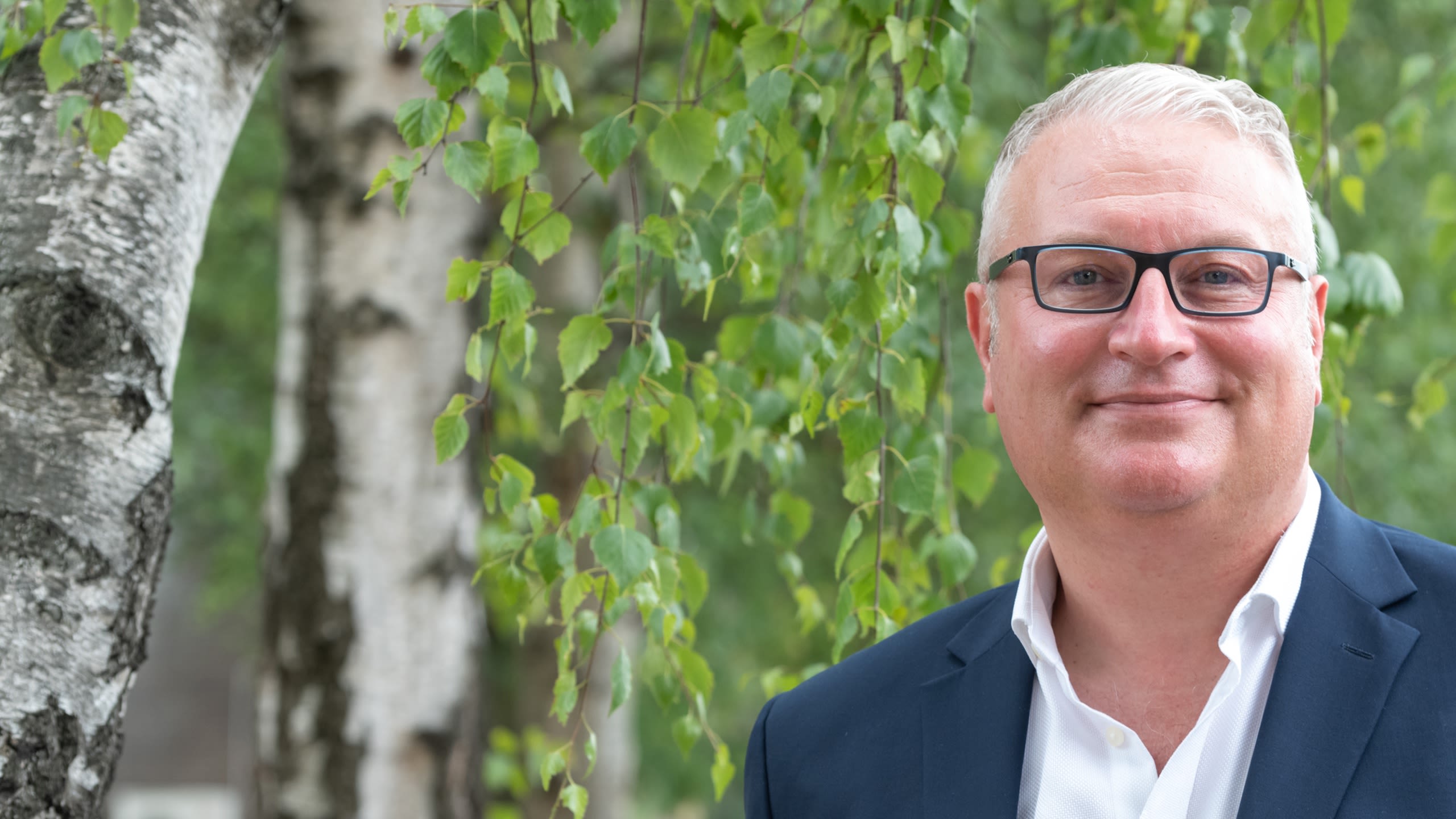
Catherine Anderson
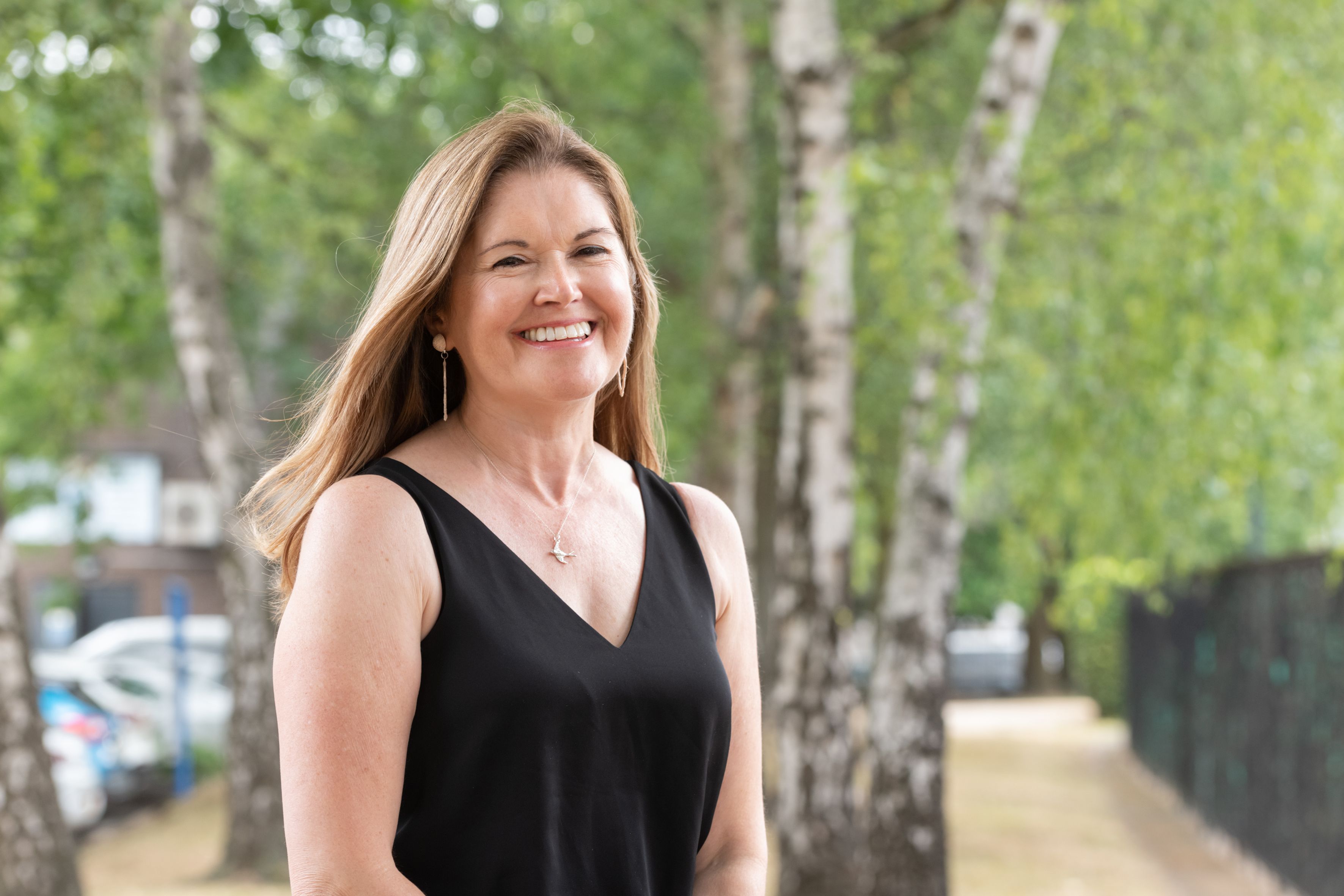
Catherine Anderson was diagnosed with airway stenosis in 2004. She works with Dr Roe on the Patient Concerns Inventory for People Diagnosed with Airway Stenosis tool.
“I was diagnosed with airway stenosis in 2004. During the two years prior, I had been struggling to breathe, gradually getting worse. At first I was told I had asthma, and once that was disproved, it was suggested I had anxiety and was having panic attacks. I finally got my diagnosis after a lot of pushing and talking to many doctors.
“I went straight onto Google and there was hardly any information on the disease. My doctor told me that it is really rare, affecting around two people per million and mainly women.
“I decided to set up an airway stenosis support group, to have people to talk to, see what we have in common and how we could help find new treatments or a cure.
"My professional career is in social and market research, and once I had 100 people in the group from around the world it made me think about gathering data, as none of the previous studies that I read on the disease had more than 16 patients.
"From lowly roots in 2009, there are now more than 6,600 members in the group and many of them have helped contribute to over 10 published research papers on the disease.
“I enjoy the experience of working on research as a patient. It is a way to empower myself from a disease that suppresses you by restricting your breathing and voice.
“I first got involved with Dr Roe’s work in 2018, sharing my experiences of airway reconstruction surgery at Charing Cross Hospital.
"My work with Dr Roe involves checking and reading things such as his research proposals and questionnaires. Drawing on my personal and research experience, I would advise him on changes or how to say things differently, so it makes sense to patients. I have also taken part in meetings and focus groups.
“I enjoy the experience of working on research as a patient. It is a way to empower myself from a disease that suppresses you by restricting your breathing and voice.
For me, as long as there’s research there’s hope.
"I have so many questions and want to seek answers to them. Being able to turn a negative into a positive through research has been rewarding.
"Although we haven’t found a cure yet, I have been involved in several studies and worked with so many of the world’s best doctors on this disease, I think we will find it one day. Meanwhile, through research such as this by Dr Roe, we can help improve the patient experience and treatment options.
“Being part of airway stenosis research has helped me maintain good relationships with my doctors and I have been fortunate to meet many other patients with the same condition. For me, as long as there’s research there’s hope.”

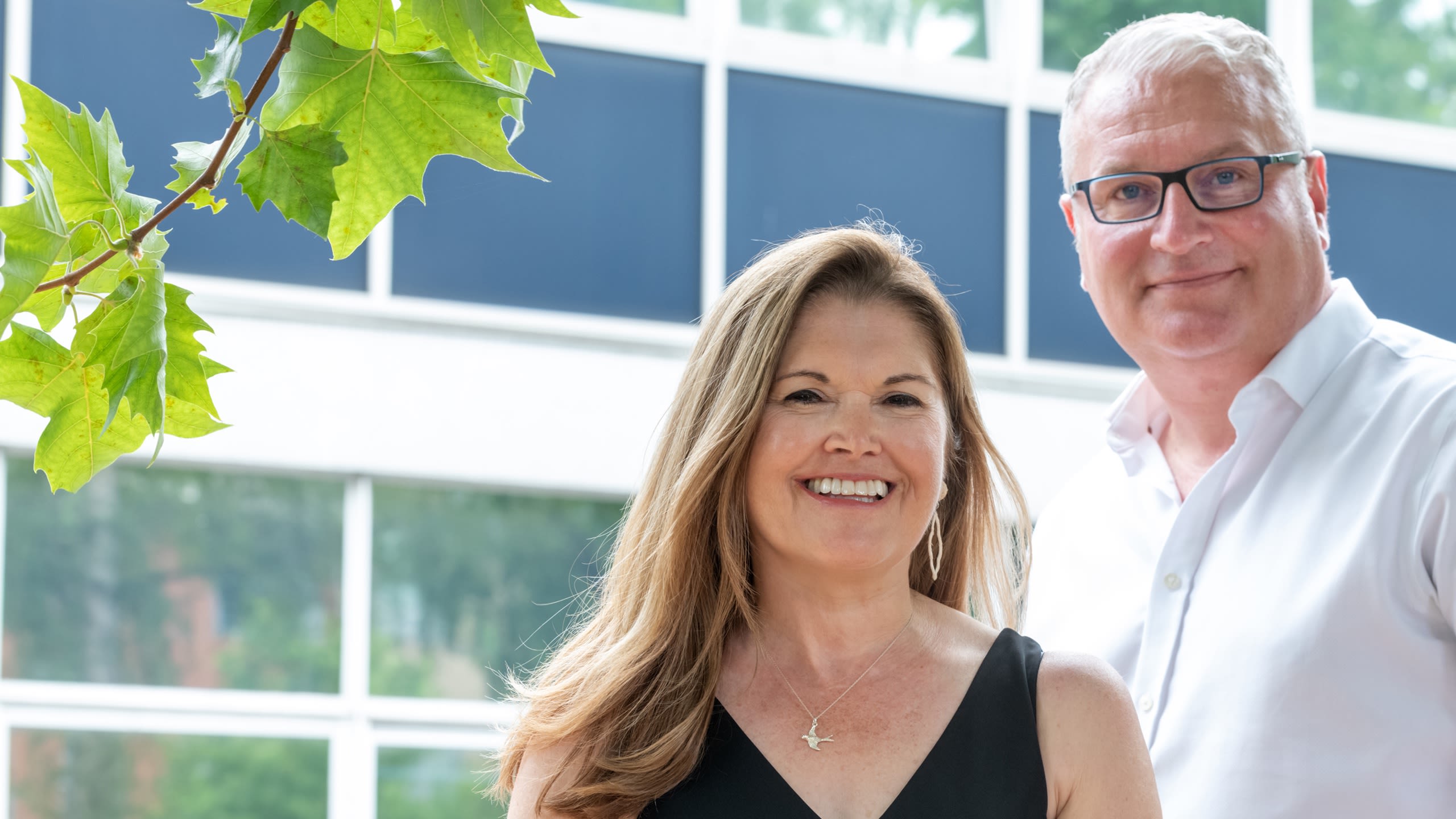
Professor Azeem Majeed
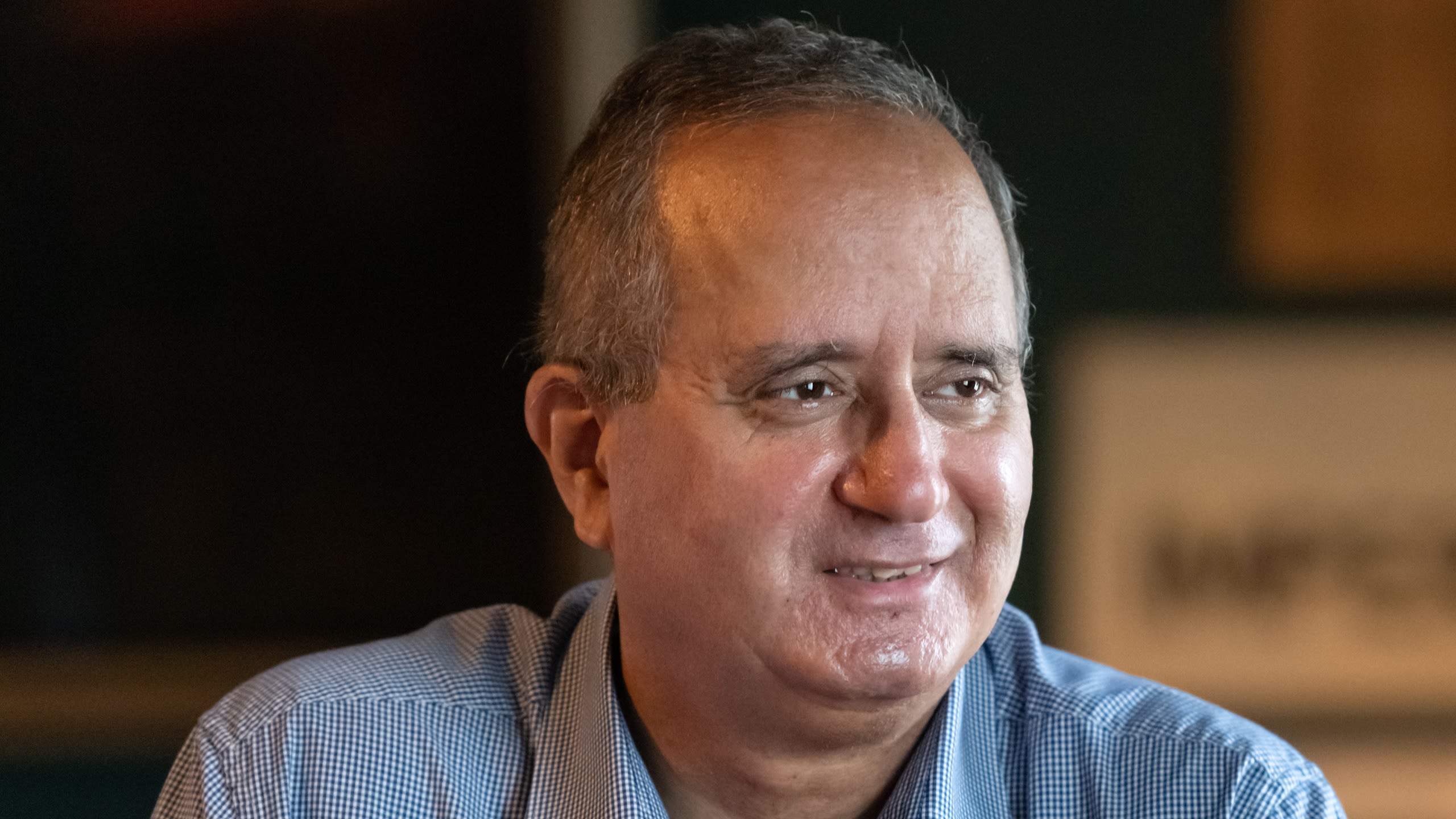
Professor Azeem Majeed is Head of the Department of Primary Care & Public Health at Imperial College London and is Director of the NIHR NW London Applied Research Collaboration (ARC) based at Chelsea and Westminster Hospital Foundation NHS Trust.
He and his team work with NHS partners and patient groups to develop ways of preventing disease, ensuring better health outcomes and improving patients’ experiences of the NHS.
“Since 2020, we have been focusing on COVID-19 research. We have been working on a number of projects, such as improving vaccine confidence and addressing hesitancy to improve vaccine take-up rates, especially in London which has the lowest ratess in England.
"We also worked on risk assessment frameworks to protect NHS staff during the pandemic, published guidance for the public and professionals on how to exercise after an infection, and looked at the effectiveness of vaccines.
“The COVID-19 pandemic has really highlighted the importance of research. We wouldn’t have the treatments or the vaccines for COVID-19 without it.
“Our COVID-19 work has received a lot of attention and I have been in the media a lot more than I used to before the pandemic.
"Our work has helped to shape policy work, such as encouraging people from ethnic minorities to take the COVID-19 vaccine and addressing concerns they may have.”
“The COVID-19 pandemic has really highlighted the importance of research. We wouldn’t have the treatments or the vaccines for COVID-19 without it. However, we do need a broader range of clinical staff such as nurses, pharmacists and physiotherapists doing research.
"A good first step for anyone from those groups who are interested in research is to find out what is going on in your departments and contact those people if you want to get involved in it.
“One of the outcomes of doing research during the COVID-19 pandemic is that it has allowed for us to form collaborations with people we have never worked with before.
"The public supported us by taking part in trials and we had use of NHS data. I hope these things continue once the pandemic is over.”
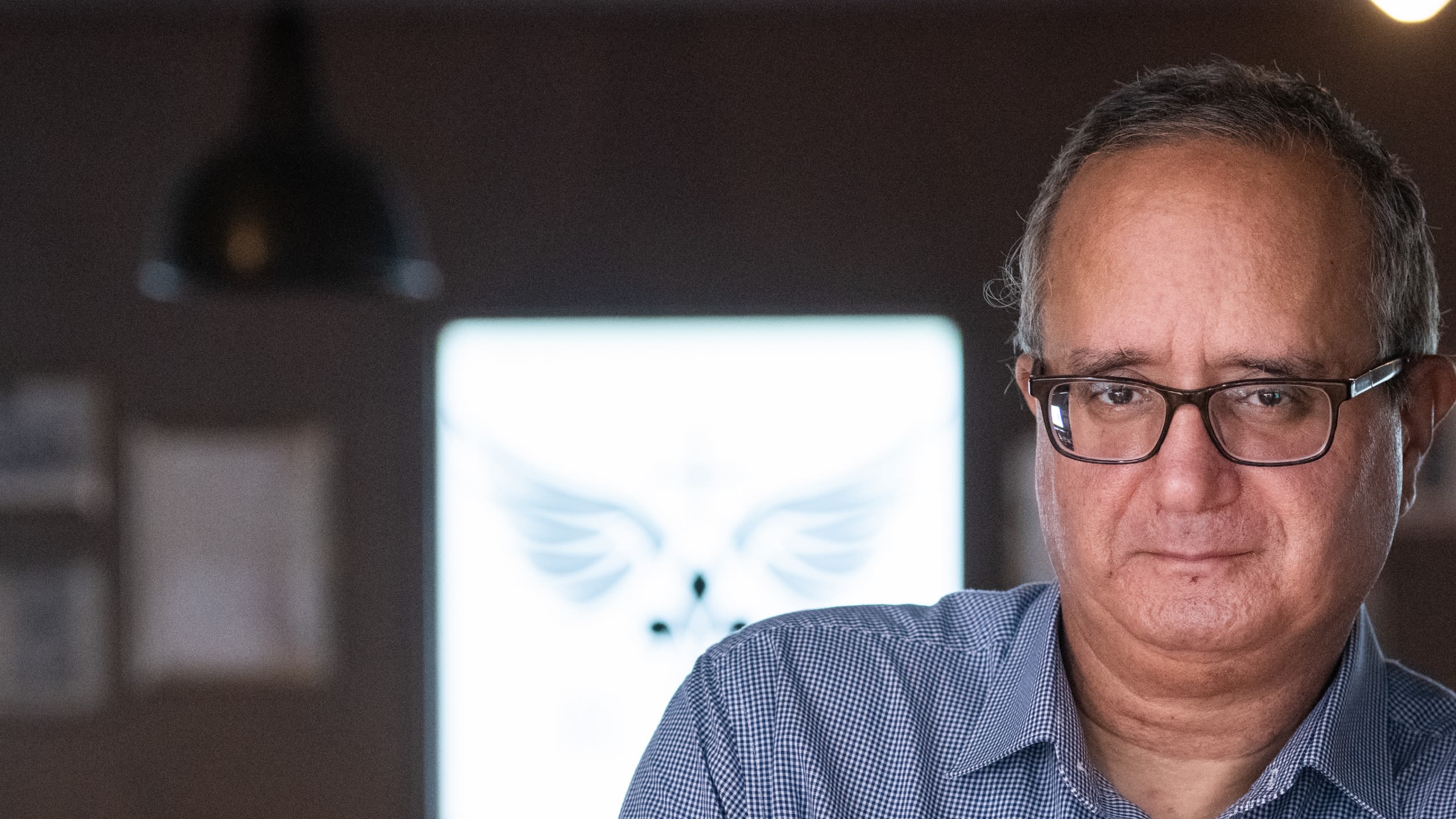
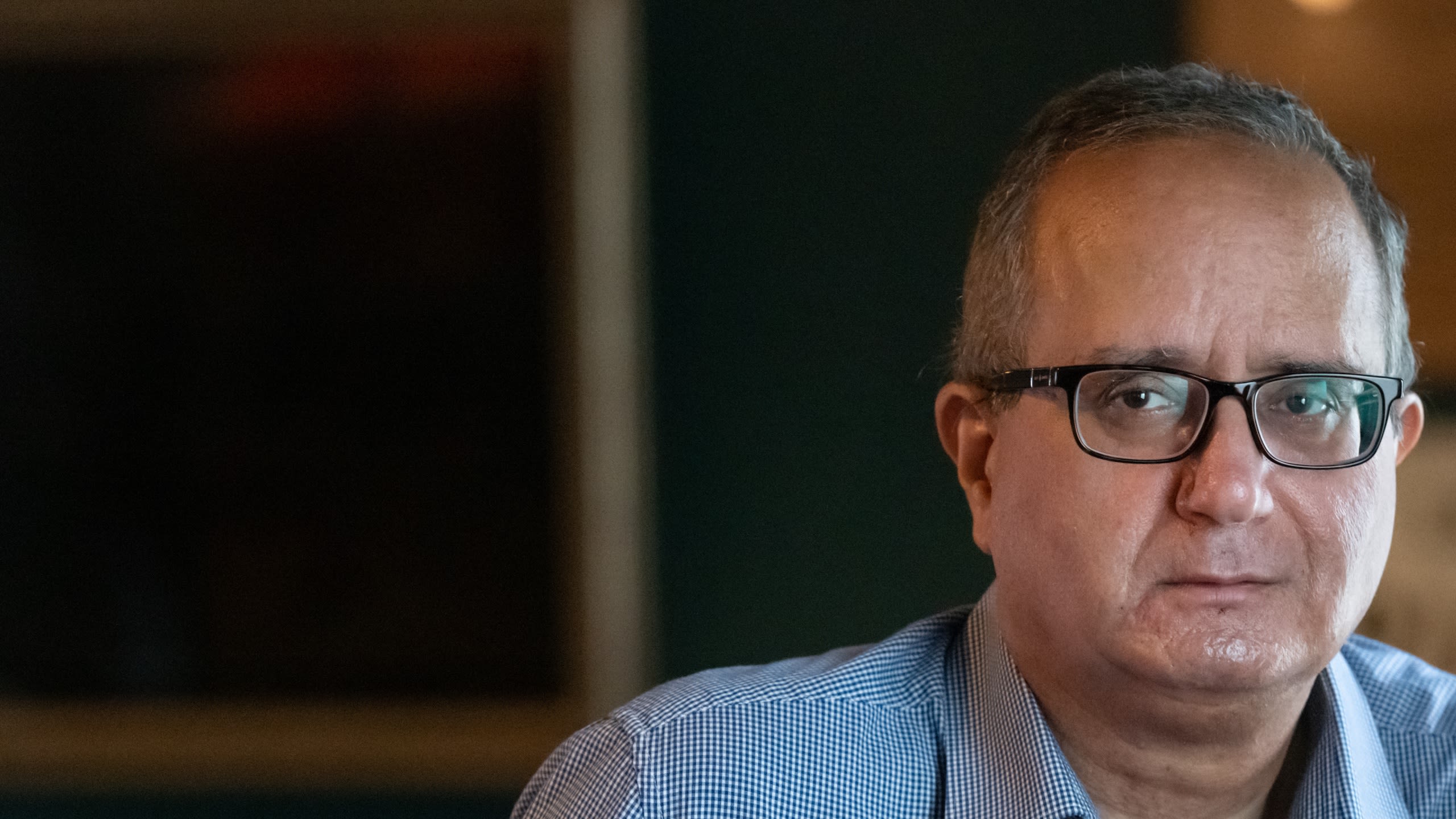
The Imperial College Academic Health Science Centre is a university-NHS partnership aiming to transform healthcare through research.


